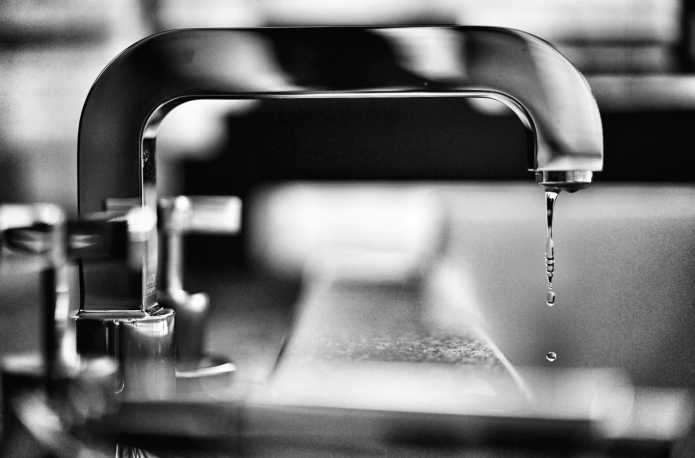
Owning your own plumbing business gives you freedom and the ability to shape your future. Follow this ultimate how-to guide to starting a plumbing business.
If you’re considering starting your own plumbing business, you’re in good company! You can expect job growth of around 14 percent over the next few years.
That’s great news for you and any employees you hire!
Is the business startup process holding you back from starting the business of your dreams? Not after today!
Read our comprehensive guide on starting a plumbing business. We’ve included most of the basic tasks you’ll need to complete before you unclog your first customer’s drain.
Starting a Plumbing Business with a Plan
You may have top-notch plumbing skills but without a business plan, your new plumbing business may never get off the ground.
Any small business owner needs a clear business plan. A business plan serves as a road map, outlining the details of your business. Topics included in a business plan include:
- Business Name
- Target Market
- Startup Costs
- Ongoing Costs
Your business plan also details how you will charge for your work. You should also project how long it will take you to break even.
Business plans can help you identify potential obstacles and identify certain unknowns about your new business. A business plan isn’t a stagnant document and will change as your business grows.
Once you’ve developed a business plan, you’re ready for the next step—licenses and permits.
What Licenses and Permits Do You Need?
You may work wonders with a pipe wrench and a plunger, but if you’re not licensed by the state you do business in, you can’t legally charge a customer to unclog a toilet.
Most states have licensing requirements for both journeyman and master plumbers. Some states require plumbers to take exams. Others require plumbers to apprentice before they can sit for licensing exams.
Before you officially open for business, make sure you understand, and comply with the requirements of your state. You’ll also apply for a tax identification number, which you’ll use for a variety of things including reporting your taxes.
Will you sell parts and equipment to your customers? If so, your state may require you to apply for a retail license. Retail licenses allow a business to purchase goods tax-exempt and collect the tax from the customer.
Any sales tax you collect from customers gets paid back to your state!
Plumbing Businesses Must Carry Insurance
After taking care of your licenses and permits, the next order of business is insurance.
A plumbing business must carry several types of insurance including:
- General Liability
- Worker’s Compensation
- Commercial Auto
- Contractor’s Tools & Equipment
General liability covers issues common to businesses that work on customer’s properties or have face-to-face contact with clients. This type of policy covers bodily, property, and reputational damages caused by you or your business.
Almost every state requires any business with employees to carry worker’s compensation insurance. Worker’s comp is for your employees’ benefit and helps cover medical costs and lost wages if they experience a work-related injury or illness.
If you own a vehicle for your plumbing business, you’ll need insurance and your personal auto insurance will not suffice. Commercial auto insurance covers property damage and medical costs due to an accident caused by you or one of your employees. This insurance may also cover damage to your business vehicle by weather, vandalism, or theft.
Finally, you’ll need contractor’s tools & equipment insurance to help cover repair or replacement of lost, stolen, or damaged tools and equipment. Speaking of tools and equipment, next we’ll talk about what goes into the toolbox for your plumbing business.
The Plumbing Business Toolbox
As the owner of a plumbing business, you already know you’ll need certain tools and equipment. Most professional plumbers keep the following tools handy at all times:
- Pipes wrenches
- Pipes
- Pipe fittings
- Propane torches
- Reciprocating Saws
- Circular Saws
The experts at TigerFish Tools also suggest investing in a good quality pipe cutter. Makes sense since plumbers work extensively with pipes, right? If you plan to offer sewer and drain cleaning services, you’ll also need equipment for those types of services.
Along with your tools, shop for a reliable vehicle with room for all your equipment.
The tools of the trade for a plumbing business don’t only include pipes and wrenches. You’ll also purchase business tools like phones, a fax machine, computers, accounting software, and GPS systems for you and your employees.
If you run your business from a location other than your home, you should consider buying office furniture.
Learn How to Bid
A huge part of running a plumbing business is bidding for jobs. It’s unlikely you’re the only plumbing business in town and it’s critical that you learn everything you can about the bidding process.
This is where your business plan comes in handy because you’ve already determined what you’ll charge customers.
Many plumbers forget certain details when submitting quotes or bids for work. Make sure you figure in costs for extra services you’ll provide such as the use of a backhoe for excavating, dumpster rental and debris removal, and correction of existing code violations.
One way you can learn about the bidding process in your market is to research how your competition handles their bids.
Marketing Your Plumbing Business
Like any other service business, you’ll need to market your business. You can have a savvy logo and a catchy company slogan, but unless you actively market your business, prospective clients won’t notice you.
Plumbers target two types of clients: those who need emergency services and those who need routine plumbing installations or maintenance.
Your marketing strategies should include both types of customers.
You can start small and as you grow, increase your marketing budget and adjust your strategies. Start with online marketing. Your online marketing strategy should include the following:
- Plumbing Website
- Facebook Page
- Google Business Listing
- Online Reviews
Online marketing doesn’t cost nearly as much as offline marketing. It’s easy to reach a wide audience with minimal investment of time and cost. As your business grows, you can scale your marketing program.
Ready to Start Your Plumbing Business?
We’ve given you some (but not all) of the basic steps needed to get your business started. If you start with a clear plan, make sure you obtain the right licenses and permits, buy good quality tools and equipment, insured your business, and get your name out there, you’ve made an excellent start.
If you enjoyed this post, and want more information on starting a plumbing business, continue reading our blog. You’ll find a range of articles in our archives to help you find answers to many of the common questions asked by business owners like you.


